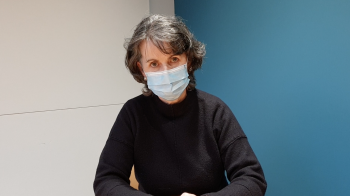11/01/2021

“In early December 2020 we issued what we described at the time as ‘a stark warning’ about huge pressures across the health and social care system in Northern Ireland.
“At that time we stressed that several of Northern Ireland’s acute hospitals were already operating beyond capacity. Within days, the pressure that the system was under was evident through the images shown across media outlets of multiple ambulances queuing outside Emergency Departments. We also highlighted that there was a very real risk that hospitals could be overwhelmed in the event of a further COVID-19 spike in January.
“Although different parts of the country are in different stages of the third COVID-19 surge, and individual hospitals are reflecting this, the situation is very serious with modelling projections indicating that in the third week in January we will be trying to contend with double the number of COVID positive patients compared to the current position today, when several hospitals already have record numbers of patients.
“This is not a simple matter of putting up more beds. We need the staff to care for the increased number of patients. Pre-existing staffing pressures and staff absence because of COVID, and other reasons, mean that those staff simply aren’t there.
“Already several Trusts are having to stand down all but the most urgent elective surgery, including some red-flag cancer surgery, to redeploy staff to meet the urgent and immediate needs of extremely ill patients, especially both COVID and non COVID patients needing ICU care. These postponed operations will be rescheduled as soon as possible. We have established a regional approach to ensure that any available theatre capacity across Northern Ireland is allocated for those patients most in need of surgery, both during surge and as we come out of this surge. This may mean that patients will need to travel further for their surgery. Cancer services are seeking to maintain chemotherapy, radiotherapy and other non-surgical treatments and alternative treatments will be provided in the absence of surgical options.
“We know that we speak for all health and social care staff in assuring the public that we will do everything that we possibly can to deal with the situation that is unfolding. Our staff, although exhausted, will once more go above and beyond to do the best they can for as many people as possible, and we thank them for it. It will definitely not be easy and the care that we are able to provide will at times fall short of the high standards we normally deliver but we will do our very best. Desperately ill patients whether COVID or non-COVID will always be the ones being prioritised.
“No-one should be attending an Emergency Department at any time unless they need emergency care. It is likely that those who do attend will wait longer to be seen and for admission to hospital if that is what they require. Patients arriving by ambulance will also wait at times, sometimes for many hours before space is available in an already over-stretched ED. This has a direct impact on the ability of the Northern Ireland Ambulance Service to respond, in a timely manner, to life threatening emergencies in the community.
“Patients also need to leave hospital as soon as they are medically fit to leave. We will work tirelessly to ensure that this happens. That might mean accepting a placement where it is available and it might also mean families having to go the extra mile to provide temporary support for relatives. But we will need every bed that we have for those that are most in need.
“Pressure in one part of the health and social care system inevitably impacts on the other parts. For example, we might once again need families to be willing to fill unavoidable gaps in domiciliary care.
“Never has the phrase ‘all in it together’ been so pertinent and just so important. The COVID-19 vaccines provide the long-term hope and the current lockdown offers the opportunity to shorten the duration of the current surge. The public can play their part too by staying at home, practising social distancing and good hand hygiene and wearing face coverings.
“We thank you in advance for your assistance.”




